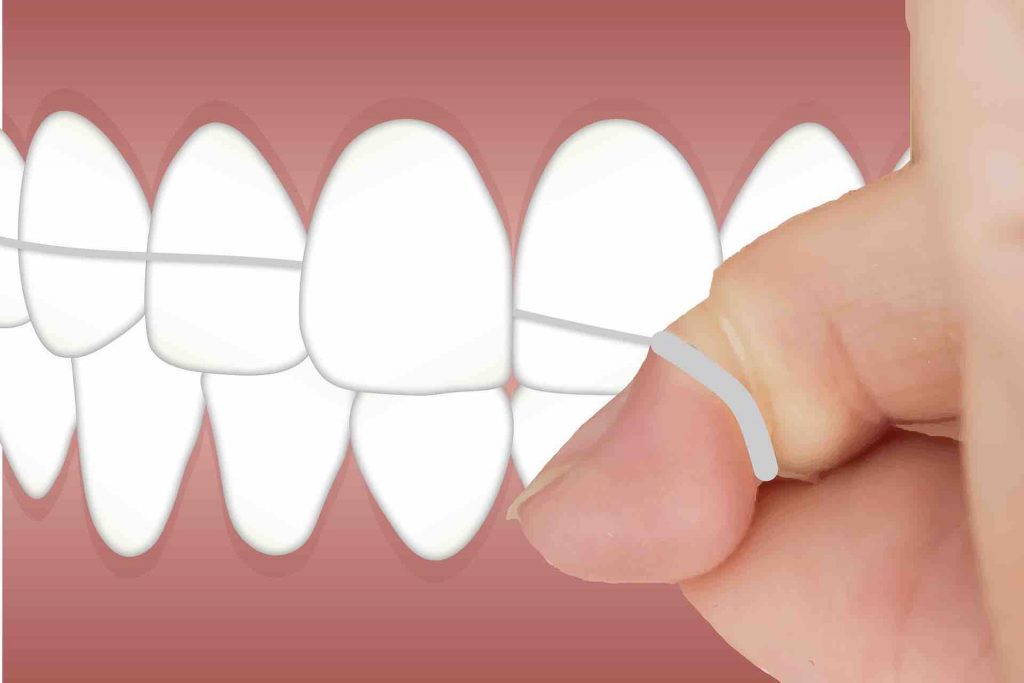A recent study investigating the brain samples of people living with dementia detected the presence of gum disease bacteria in those brain samples, further establishing the link between dementia and dental health.
When the brain is repeatedly exposed to bacteria from the gums, it triggers an immune response which reacts with the diseased gums and may lead to the destruction of nerve cells, increasing the possibility of memory loss.
When people skip brushing and flossing, plaque builds up and this plaque activates the immune system. When the immune system is activated repeatedly due to foreign invaders, the inflammation caused over years of poor oral care can eventually damage the brain.
In fact, according to a study published by the International Society of Vascular Behavioral and Cognitive Disorders, poor oral health increases the possibility of dementia by 30 to 40 percent over a span of 32 years.
How Dementia Invites Oral Problems
Maintaining oral hygiene for dementia patients is very important because of the unique factors that affect them. For instance, people who have dementia may be prescribed medicines, some of which have a side effect like dry mouth. Saliva acts as a natural lubricant that helps keep the teeth and mouth clean while preventing the buildup of plaque which leads to oral infections, decay, and gum disease.
In addition to this, people suffering from dementia have a reduced ability to maintain dental hygiene and keep up with routine dental appointments. This leads to minor oral conditions which turn into major health problems with the passage of time. According to a study by Family Caregiver Alliance, lack of oral hygiene has also been linked to heart disease, respiratory disease and osteoporosis.
If someone with dementia is having dental problems, they will experience the following symptoms:
- Irritation or aggression
- Refusing to wear dentures that were tolerable previously
- Pulling sensation at the mouth
- Restlessness and disturbed sleep
- Flinching while shaving or washing the face
- Refusing hot, cold, or hard foods
If you notice any of the symptoms mentioned above, consult a doctor or seek dental care.
5 Dental Care Tips for Caregivers Dealing with Dementia Patients:
- Modeling the Desired Behavior
With the progression of dementia, patients tend to forget the steps of oral care. The caregiver can either provide short, simple instructions or use a “watch me” technique and guide the person through the oral care routine.
- Monitoring Dental Care
While it is important to brush teeth or dentures after every meal and floss regularly, don’t be hard on the patient about the timing. Choose a time when the patient is most calm and cooperative and make sure the brushing and flossing is done gently.
If you come across any signs of pain or discomfort either during eating or brushing, they may be due to ill-fitting dentures or mouth pain.
- Maintain an Oral Care Routine if the Patient Wears Dentures
- The dentures should be brushed with a denture brush and rinsed after every meal.
- Dentures should be removed at bedtime and soaked overnight for cleaning.
- The dentures may not fit comfortably over time so a dental checkup is necessary to ensure that the dentures fit well.
- Use a Fluoride Toothpaste and a Non-alcohol Mouthwash
Use fluoride toothpaste but ensure that the concentration is approved by your dentist. The right level of fluoride in toothpaste will fight to repair the damage and keep the enamel healthy.
People with dementia often suffer from dry mouth due to which alcohol-based products may not be recommended. Supplement fluoride toothpaste with a non-alcohol mouthwash with a high concentration of fluoride.
- Schedule Dental Visits Regularly
It is very important to keep up with regular dental visits, especially for people with dementia. The dentist may give you suggestions that will help you make routine dental care easy for your loved ones.
Apart from practicing good oral hygiene and visiting the dentist regularly, you can take other steps to promote healthy teeth and gums at home. You can monitor the person’s daily diet and keep a check on the intake of sugar. Also, encourage them to drink plenty of water as it helps keep the mouth moist.
For more information, check out Dr. Joshua Hong’s Smile Clinic.
